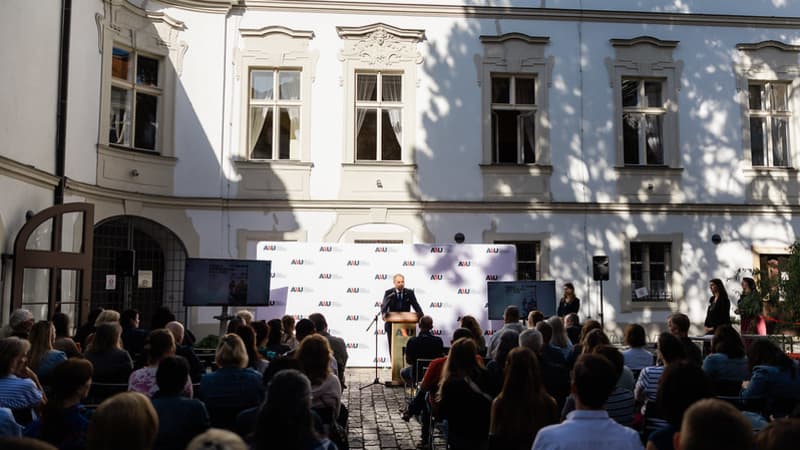AAU President: How Much of the Economy Does a Well-Functioning School System Save?

At Anglo-American University, we believe education is essential, not only for shaping the future workforce, but also for sustaining today’s economy. AAU President Jiří Schwarz highlighted this perspective in his recent commentary for Hospodářské noviny, noting how the COVID-19 pandemic underscored the vital role schools play—not just in building human capital, but in enabling parents to work and supporting overall economic prosperity.
There is no doubt about the educational and formative role schools have. Their quality is reflected in the strength of a society’s human capital. The higher that quality, the better the conditions for rising labor productivity and the greater efficiency of all production factors. Those improvements are the foundation of our collective prosperity.
It wasn’t until the COVID-19 pandemic and the closure of school buildings that we fully saw how much our current prosperity depends on schools—not just our future prosperity. Thanks to the network of preschools and schools, both parents are often able to work. In the Czech Republic, nearly five million men and women are employed, including self-employed individuals. While some human labor is being replaced by machines and even intellectual work by artificial intelligence, people remain a key factor of production.
School closures during the pandemic hit families with young children who could not be left home unsupervised the hardest. About 1,020,000 children attend kindergartens and grades 1–3 of primary school. With a 2021 fertility rate of 1.83 children per woman (Czech women were among the most fertile in the EU), closing school buildings affected nearly 560,000 families. Because only about 70 percent of families have both spouses employed, approximately 390,000 families had to change their work arrangements due to pandemic restrictions. At least one parent stayed home and, while caring for school-age young children, often had to attend to their children’s schooling as well. Taking into account that retired grandparents sometimes stepped in for certain working parents, the resulting labor shortfall was roughly seven percent.
Although technological advances made working from home more feasible during pandemic restrictions, the GDP still fell by 5.3 percent in 2020. Other factors also contributed to the decline, of course. Still, it is clear that a developed education system enables higher employment, greater output, higher wages, and better material well-being. In this way, preschools and schools contribute not only to the quality of the future workforce—and therefore our future prosperity—but also to our present prosperity by enabling parents of young children to work full-time.
This article was originally published by Hospodářské noviny and is reposted here with the author’s permission.